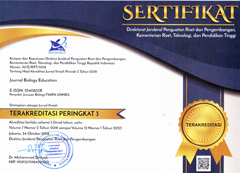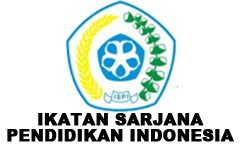The Video Effectiveness Based on Ethnobiology in Komodo Island as the Learning Media of PLH
Abstract
The video-based on local wisdom and ethnobiology in Komodo Island is a learning media that utilizes the Komodo Island society’s local knowledge in the utilization of natural resources to fulfill the daily needs and social efforts in nature conservation. This video applied as learning media that can bring out one of the characteristics of conservation, which is the attitude of caring for the environment. This study is aimed to analyze the feasibility and effectiveness of video that is based on local wisdom and ethnobiology in Komodo Island as a learning media in the study of PLH. Based on the result of observation in SMA 1 Bae Kudus, it needs a learning media that is based on local wisdom and ethnobiology in sustainable development subject matter and environmental pollution to help students in the learning process. This study was a Research and Development study by using one group pretest-posttest design which is done in the tenth-grade students in SMA 1 Bae Kudus. The samples were from X MIPA 3 Class and X MIPA 2 Class. The result of video eligibility obtained an average value of 90.2% with very decent criteria, its comes from media validation which obtained a value of 90,83 % with very valid and material validation which obtained a value of 72,92 % with very valid. The result of the video effectiveness comes from students learning outcomes and conservation attitudes. The students learning outcomes based on the calculation of N-gain which obtained a percentage of 86,11% with medium to high criteria and classical completeness which obtained a percentage of 86.11% calculated from the posttest value reaching ≥75% of the total number of students accepted by KKM 75 and conservation attitude obtain an average yield of observers, friends and themselves at 83.79% with very high criteria. Students and teachers gave a good response to videos based on local wisdom and ethnobiology in Komodo Island. Students recycle household waste. Based on this, it can be concluded that the video based on local wisdom and ethnobiology in Komodo Island is feasible and effective as a learning media in PLH subjects.
The copyright of the article once it is accepted for publication shall be assigned to the journal as the publisher. The intended copyright includes the right to publish the article in various forms (including reprints). The journal maintains the publishing rights to the published articles.
This work is licensed under a Creative Commons Attribution 4.0 International License.







